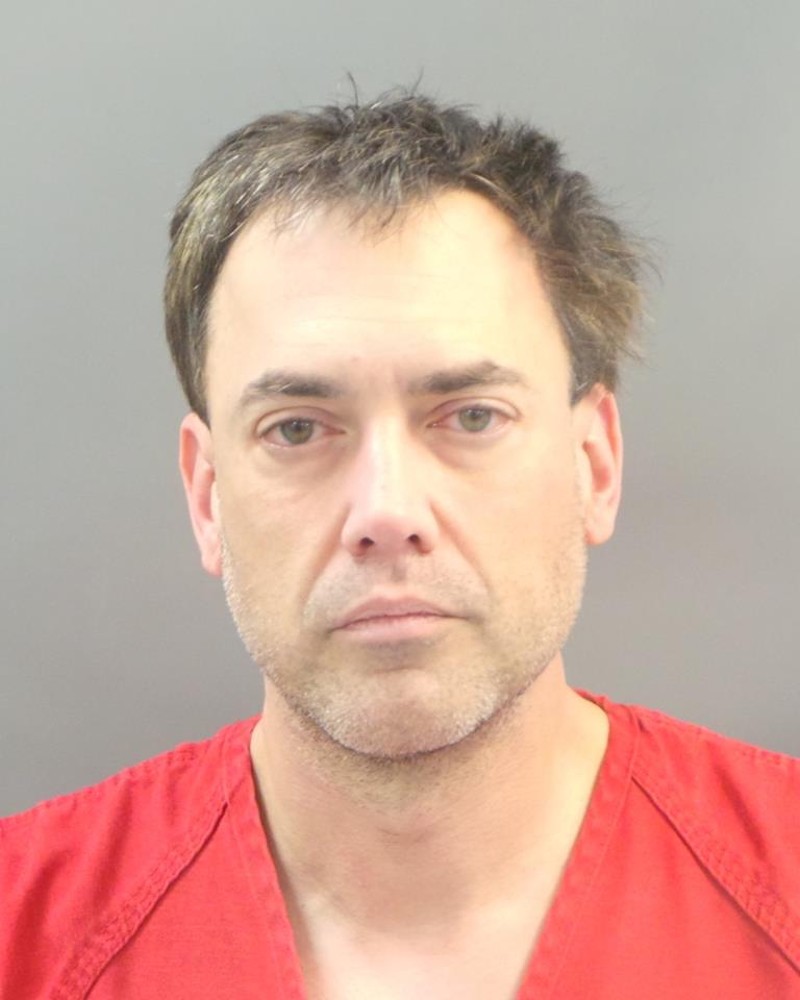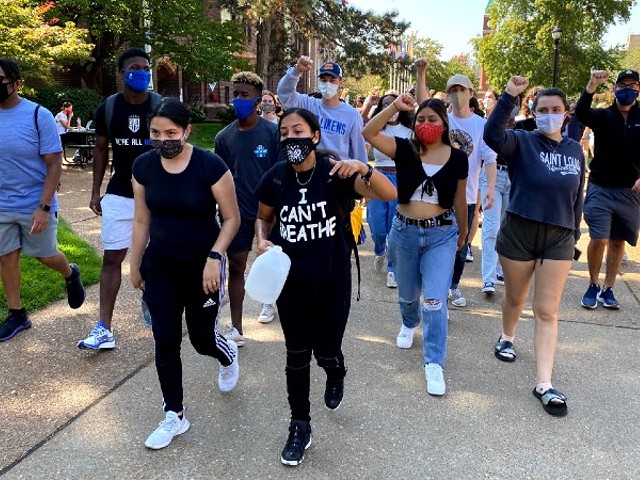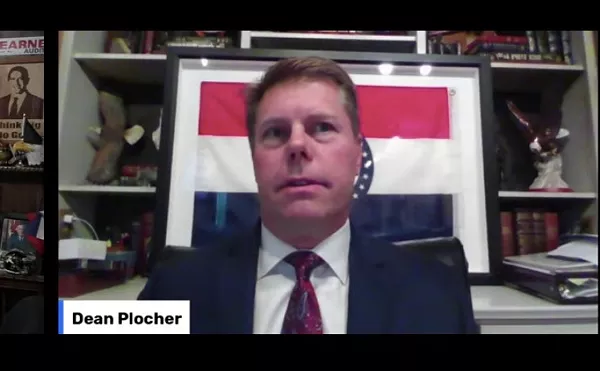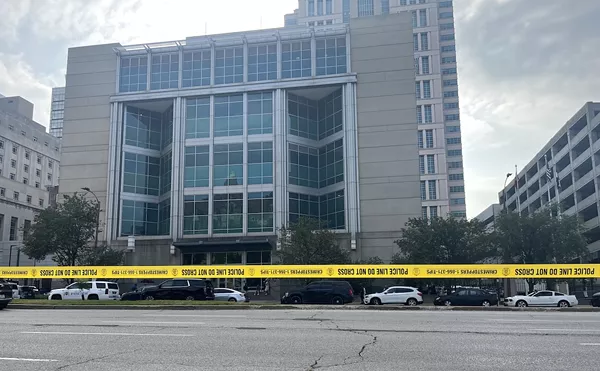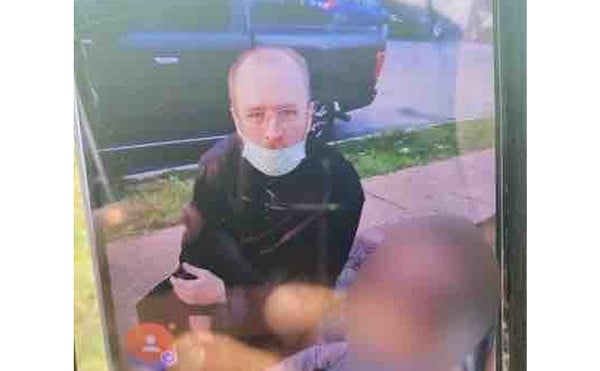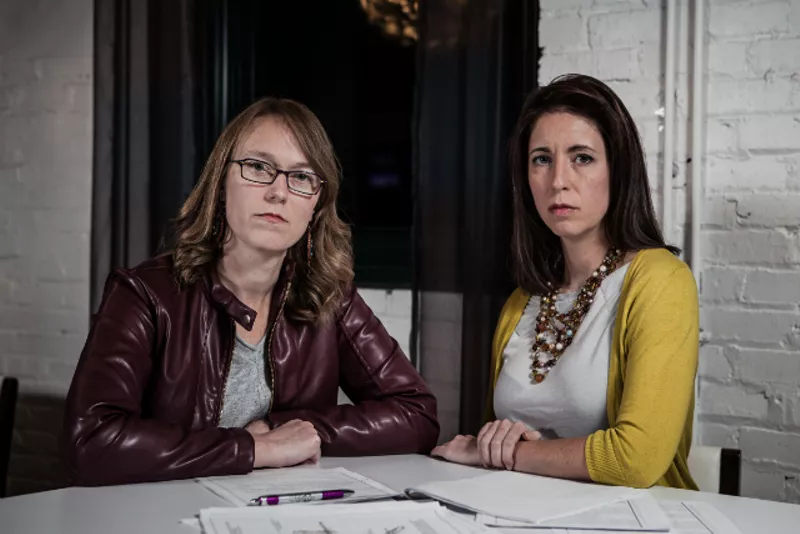
COURTESY OF CASEY OTTO
Rebecca (left) and Angela want other women to know what they know about dealing with an abuser.
The women know a lot now that they wish someone would have explained when they were first under attack.
The list includes things like the steps for applying for an order of protection and what parts of your story make a difference in front of the grand jury. They still find it frustrating that so much of discovering what they needed to know fell to them at a time when they were rattled, but now that the man who harassed and threatened them along with multiple other women is set to leave prison, they would like other women to know he'll be out there, in case he begins again.
"I'm not afraid for my own self," says a woman, whom we'll call Carolyn for the purposes of this article. "But this guy really seems to have a psychosis that needs deep mental health attention."
Robert Merkle, 51, is due to walk out of Tipton Correctional Center on October 2, maybe earlier, after spending just short of two years and two months in state prison. He was convicted in 2018 of three felony and three misdemeanor counts of harassment. He was sentenced to twelve years total, but because he is being allowed to serve the sentences for each count simultaneously, his punishment was only three years. He'll serve the final year on parole.
Carolyn isn't sure how she landed on Merkle's radar. Maybe through Meetup.com, a site that helps people find activities, including discussion groups, social events, lectures and nature outings. Because you can see if other people sign up for the same activities as you, Merkle used it to track women.
He also used a number of dating apps, often under assumed names, which included David, James and Blaine. Sometimes, he would cross paths with a woman in person and become obsessed. He would send a barrage of messages, starting casually in many cases only to escalate rapidly to terrifyingly detailed threats of rape.
Carolyn showed St. Louis police the rape threats he sent, and they put a car in front of her place for a little while. The messages eventually stopped, and she learned later he had been arrested.
"Whatever his game was with me, it was never completed," she says.
She later connected with Rebecca by chance. (Rebecca requested that she be identified only by her first name.) Meeting for coffee about unrelated matters about a year ago, they ended up sharing stories of their harassment and realized they had both been targeted by the same man. The charges against Merkle involved six women, but three of the women interviewed for this story say they were told by police that he was messaging many more, possibly dozens, in Missouri and beyond.
"His target is not one woman," Rebecca says. "It's a whole class of women."
Specifically, he picked white women between the ages of 20 and 40. Rebecca's encounter with him after going on a seemingly unremarkable date led to one of the three felony convictions. She has been steadfast in standing up against him in hopes of aiding others: She spoke at his parole hearing in January 2019, and because only victims in the felony cases were allowed to attend, she brought another victim, Angela, who had a misdemeanor case against Merkle.
Rebecca says it can be hard to know what to do when an abuser sets his sights on you.
"One of the challenges for a lot of us at the beginning," she recalls, "was knowing who to contact."
There are the police, of course. But their response can vary widely. Rebecca knows of one woman who said officers made a joke when she reported what was happening to her.
"That's not what a victim needs to hear," she says.
In other instances, police have been extremely helpful. Through Angela, Rebecca connected with St. Louis Detective Martin Garcia, who led the investigation into Merkle. He has been diligent, accessible and ultimately effective, and a number of the women continue to check in with him as they prepare for Merkle's release, people interviewed for this story say.
But there are other resources, such as Safe Connections (24-hour crisis helpline, 314-531-2003), an organization that works against domestic and sexual violence. They can start working with people before and after police get involved — that is, if police involvement is even part of the strategy that people choose.
Brigid Welch, Safe Connections director of crisis and prevention, says there are hundreds of resources in the St. Louis area.
"A thing I usually say to survivors and those who want to support survivors is 'You don't don't know what you don't know,'" Welch says. "If you have never gone through this situation, you wouldn't maybe know about the order of protection process or about advocates or organizations or anything like that."
Welch says it's important to empower people to create their own plans, rather than becoming one more person trying to control their actions.
Even with COVID-19 shutdowns at St. Louis and St. Louis County courtrooms, hearings for the orders of protection are still happening virtually. The city and county each have information about that online. For the city, information is here or by calling 314-622-4434. The county's site is here, and the phone number is 314-615-4725. The state court's website also has information and forms in its "adult abuse" section.
Welch says people seeking an order of protection can apply without a lawyer, and often abusers don't show up for hearings. If people feel concerned about their lives or safety, they should tell a judge that, she says. Advocates can help walk them through the process and explain the forms and order.
One of Angela's frustrations with the justice system in her dealings with Merkle was being denied an order of protection. Her contact with Merkle began in 2017 when she signed up to attend a discussion group promoted through Meetup.com. Merkle had seen her at a previous group and soon began sending messages threatening sexual violence. She hurried to get an emergency order but was denied. She's still not sure what she should have done differently.
She went to the group meeting, but with her boss and other supporters in tow. Merkle never showed up, maybe because he was arrested the same evening.
Angela had taken the bold steps of posting about Merkle on Facebook, and then appearing in news stories, hoping to find other women he had targeted. It worked. She met Rebecca through a mutual friend after her Facebook post, and she connected with other women who saw her on the news. Merkle had targeted multiple women across jurisdictions.
Through two friends — one a police officer and another who had the computer skills to trace Merkle's semi-anonymous web profiles back to him — Angela was able to pull together a fuller picture of his harassment and get the attention of the police department. He's never been charged with physically carrying out his threats. However, he told some women that he had strangled an undergrad at Saint Louis University while sexually assaulting her, bragging in one message "she went to the er after I was finished."
Welch from Safe Connections says even the act of collecting and saving messages from abusers can be traumatizing. She says she's seen people meticulously catalog online harassment only to have a judge refuse to look at their files. "That can be really devastating." She recommends that they consider the emotional tax of the work. If they feel they need the info, they should do what they need to do without letting it consume them. "Try to have a life outside of the documenting of this," she says.
Angela agrees that holding onto the messages can be overwhelming, but she thinks documenting can be important.
"Maybe screenshot it and put it in a folder you rarely look at," she suggests.
Angela (identified by her first name at her request) was one of the women called in front of a grand jury in St. Louis. She assumed someone might prep her for what to expect, but that wasn't the case. She says she went in blind and was asked only if she went to work after receiving the threats. She had, but she didn't get to explain that she went to work because she felt safer there around more people. Her case, as horrific as many of the others, was treated as a misdemeanor, instead of a felony.
She wishes she had known that the difference between a misdemeanor and a felony often rests on the degree of harm inflicted. This is the sort of information she can now pass on to others, but she and the other women say they also now know of the gaps that remain in the system. They haven't been told if there are conditions of Merkle's parole to keep him from going online or to monitor what he's up to if he does. He was an IT professional before his arrest and tried to frighten his targets with details he'd found about them and their families.
As far as they know, his computers and other devices weren't confiscated.
"Since nothing was confiscated from him and we already know how savvy he is in IT, no matter what kind of therapies he's gone through, it's like putting an addict back in the same place, because he's going to get everything back," Angela says.
Merkle's attorney did not return a request for comment.
Rebecca had asked at the parole hearing that Merkle undergo a full psychological profile, but she doesn't know what, if any, programs he's completed in prison or whether he will be required to attend any once he's out. Since he wasn't convicted of a serious sexual offense, he won't be added to the Missouri Highway Patrol's sexual offender registry.
There are changes to the system that Rebecca would like to see. She doesn't think there should be a statute of limitations on harassment cases, because the experience of being targeted can be so jarring that it can be difficult to navigate the legal system right away.
She also thinks there should be ways to shift some of the burden off of victims. On the day Merkle pleaded guilty to several cases in St. Louis, she hadn't even been informed her case was among them. She just showed up for a hearing to familiarize herself with the process and was shocked to find her case had been bundled with the others — and wouldn't result in any additional years in prison for the man who terrorized her.
"I remember driving home, pulling into my parking spot and bawling, just bawling," she says. "Part of it was stress release, but part of it was, 'What the heck was that bullshit?'"
But Merkle didn't win. Rebecca can look back and see things that inspired her. She had marched in the Women's March in Washington, D.C., and from that had taken the message that she couldn't be silent. She became close friends with Angela, and she began to spend more time in nature and working out.
Merkle had tried to fill his targets with terror, but Rebecca has found ways to reduce the anxiety — and build strength through her connections with the other women and her own actions.
"It was in the process of me preparing for court, and then me preparing for the parole board where I had a personal trainer, and I was going to a gym and spending a good amount of time with a punching bag, getting my heart rate up and sweating real bad, and it was gross, it was horrible. I loved it," she says. "But I would come back happy."
We welcome tips and feedback. Email the author at [email protected] or follow on Twitter at @DoyleMurphy.

